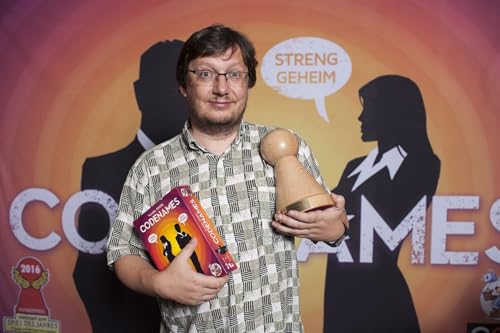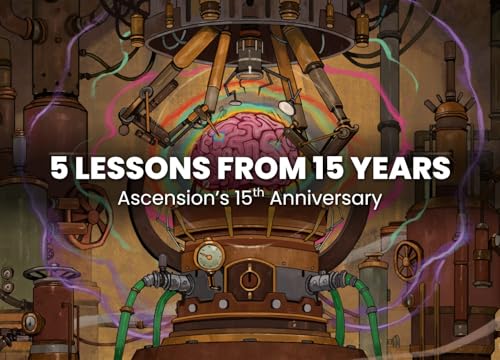About Jonathan
Jonathan Grant is a creative director at Zynga, founder of Orbital Games, and co-host of We Thought It Would Be Easy with Jordan Weisman. His career spans startups, acquisitions, and AAA environments, where he’s pitched ideas in Zynga boardrooms, built risky new projects, and collaborated with legends of the industry. Jonathan’s work is defined by his willingness to experiment, his honesty about failure, and his belief that great games hide secrets waiting to be discovered. In this episode, we dive into what it means to make the right bets, how to use criticism to grow, and why experimentation and mystery are essential tools in game design
Think Like A Game Designer is a reader-supported publication. To receive new posts and support my work, consider becoming a free or paid subscriber.
Ah-ha! Justin’s Takeaways
* Your Critics Are Right About You: Jonathan challenges us to let go of ego by acknowledging that criticism often contains truth. Instead of fighting it, use it as fuel to grow. Accepting this mindset helps designers take risks, embrace feedback, and move forward without fear of failure.
* The Power of Experimentation: At Zynga, Jonathan saw firsthand how structured experimentation can refine ideas—sometimes running a dozen tests at once. The key lesson: experimentation validates and sharpens vision, but it should never replace it. Use data to guide improvement, not dictate creativity.
* The Purpose of Gameplay is to Hide Secrets: Jonathan believes the most memorable games invite players to discover hidden layers. Secrets create mystery, turning mechanics into worlds worth revisiting. As designers, we should craft experiences that reward curiosity, giving players reasons to return again and again.
Show Notes
"Pain isn’t bad. Damage is bad." (00:17:57)
This framing really resonated with me. Creative projects often hurt, the late nights, the tough feedback, the near-misses, but that’s not the same as damage. Damage is when you burn out, ruin relationships, or risk your financial stability. Learning to distinguish between the two is essential. Pain can be a teacher or a compass; damage is a warning sign.
"Your critics are right about you." (00:27:14)
It’s a hard truth, but Jonathan is right. The ego wants to believe that critics don’t understand us, yet their words often hold a kernel of truth. When I apply this mindset, I can let go of defensiveness and see criticism as fuel for growth. Its a reminder to use feedback to sharpen both my work and myself.
"The thing that Zynga was incredible at was experimentation… sometimes a dozen experiments at once." (00:50:37)
At Zynga, experiments weren’t random, instead they were structured, frequent, and scaled. As a designer, I take from this that experimentation should validate vision, not replace it. Numbers can guide us toward sharper solutions, but they can’t generate the spark that makes a game truly special.
"Philosophically, the purpose of gameplay is to hide secrets." (01:08:29)
I love this idea. Secrets are what keep players coming back: hidden interactions, unexpected depth, and little discoveries that reward curiosity. A great tip for RPG game masters is to place a secret in every location so players always have something to unravel, with each secret offering a way to draw them back on track. In my own designs, I’ve found that the best games aren’t the ones that reveal everything up front, but the ones that invite players into a world where there’s always more to discover. That sense of mystery is what makes play feel alive.
This is a public episode. If you'd like to discuss this with other subscribers or get access to bonus episodes, visit justingarydesign.substack.com/subscribe

 Dec 4 20251 hr and 23 mins
Dec 4 20251 hr and 23 mins 1 hr and 17 mins
1 hr and 17 mins 1 hr and 14 mins
1 hr and 14 mins Oct 16 202553 mins
Oct 16 202553 mins 1 hr and 14 mins
1 hr and 14 mins 1 hr and 18 mins
1 hr and 18 mins Aug 21 202522 mins
Aug 21 202522 mins
